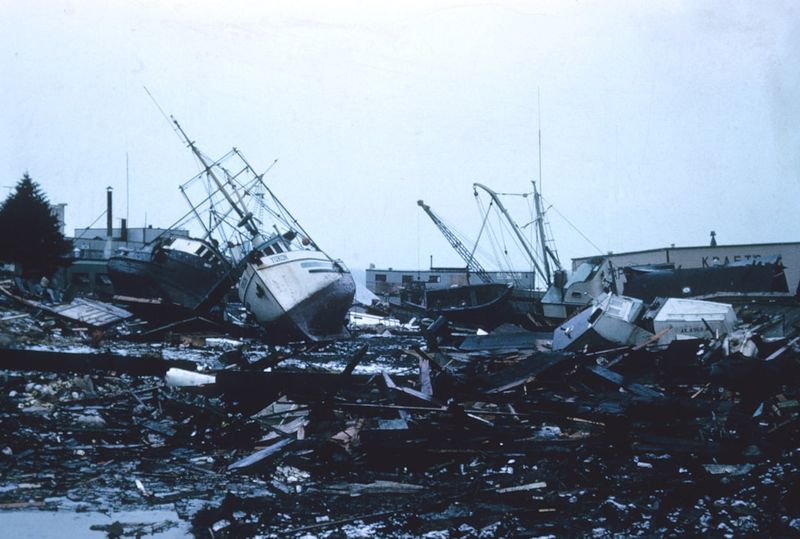Heatwave Intensifies in the Southwest, Posing Threat to Millions
A blistering heatwave continues to grip the Southwest, with more than 85 million people under heat alerts as dangerously high temperatures persist and intensify. The Western United States will continue to experience scorching temperatures throughout the weekend, with even hotter temperatures expected early next week in the South. The Weather Prediction Center warns that temperatures will be 10-20 degrees Fahrenheit above normal, potentially reaching the century mark in the interior Northwest, 100-110 degrees Fahrenheit in central and southern California, and a staggering 115-120 degrees Fahrenheit or higher in the high desert regions of southern California, southern Nevada, and Arizona. This prolonged heatwave could break more than 100 temperature records across the West and South, with Death Valley, California potentially exceeding 130 degrees Fahrenheit.
Increasing Hazards and Devastating Effects
The relentless heatwave has already led to adverse consequences. In Phoenix, temperatures have reached 110 degrees Fahrenheit for 15 consecutive days, creating significant challenges for residents. Southern California is battling three wildfires that started on Friday, including the Rabbit Fire, which has grown to 4,500 acres. Sultry conditions persist in the south-central US and South Florida, with heat indices frequently ranging between 105-110 degrees Fahrenheit and oppressive humidity levels. Concerns about power outages from increased demand have arisen in the Southwest, prompting some venues to close early or cancel events.
Areas of Arizona and Texas have been under dangerous heat alerts for more than 30 consecutive days as a result of this long-lasting heatwave. Parts of Arizona have experienced 110-degree temperatures every day this month, and the situation is expected to worsen. In Texas, El Paso broke its own high temperature streak record after enduring 28 consecutive days above 100 degrees. Similar conditions plague other parts of Texas, including oppressive heat indices between 110 and 115 degrees Fahrenheit and widespread temperatures of 100 to 108 degrees Fahrenheit.
The Health Risks and Climate Crisis
The intensified heat poses severe health risks to individuals and communities. Heat-related illnesses, including heat exhaustion and heat stroke, can be fatal, and heat-related deaths are more common than deaths caused by flooding, hurricanes, or extreme cold, as evidenced by National Weather Service data. Vulnerable populations, such as people experiencing homelessness, outdoor workers, low-income families, communities of color, and the elderly, face an increased risk of harm during heatwaves.
As the climate crisis exacerbates global temperatures, 2023 could become the hottest year on record. The effects of extreme heat have already been devastating, with heat-related deaths reported in Texas and Mexico. When the body becomes unable to cool itself, heat-related illnesses can occur, leading to fatalities. Hydration, seeking cool or air-conditioned spaces, and avoiding outdoor activities during the hottest times of the day are crucial strategies to remain safe in sweltering temperatures. Recognizing the signs of heat exhaustion and taking prompt action is also essential for preventing adverse health outcomes.
Advice and Outlook
As the heatwave continues to grip the Southwest, it is imperative that individuals and communities take steps to protect themselves. Regular hydration, staying in cool environments, and minimizing outdoor activities during peak heat periods are essential measures to prevent heat-related stress and illnesses. Furthermore, it is crucial to prioritize the needs of vulnerable populations, providing support and resources to those who may not have access to air conditioning or cool shelter.
The intensification of heatwaves raises concern about the long-term impacts of climate change. The Earth is warming at an alarming rate, heightening the risks associated with extreme temperatures. Mitigation and adaptation strategies must be prioritized to address these challenges. Government action, investment in renewable energy, and efforts to reduce greenhouse gas emissions are vital to combat the climate crisis and protect public health.
It is high time that individuals, communities, and governments heed the warnings and take decisive action. By implementing measures to mitigate the effects of heatwaves and address the root causes of climate change, we can safeguard not only our well-being but also the future of our planet.

<< photo by Annaëlle Quionquion >>
The image is for illustrative purposes only and does not depict the actual situation.
You might want to read !
- Cooler and Cheaper: Northern France Attracting More Tourists
- Québec Summer Festival: Pitbull brings the heat for a sizzling soirée
- “Unveiling the Anthropocene: Scientists Reveal the New Epoch Defined by Human Activity”
- 2023 Gold Cup: Mexico vs. Jamaica – Odds, Prediction, Start Time and Top Picks
- 2023 Gold Cup: Mexico vs. Jamaica – Betting Preview, Predictions, and Kickoff Time
- “Rock the Park Electrifies Harris Park with Headliners Mumford and Sons and Billy Shakespeare”
- Inter Miami Ramps Up Security and Luxury with New VIP Areas as Lionel Messi Joins
- Who is Rex Heuermann? Uncovering the Suspect in the Gilgo Beach Case
- Healing Hearts: Emotional Commemorations in Lac-Mégantic
- Montreal’s Energy Crisis: Massive Power Outage Plunges 200,000 Hydro-Quebec Clients into Darkness
- Heatwave Hits Canada: July 4 Breaks All-Time High Temperature Record




